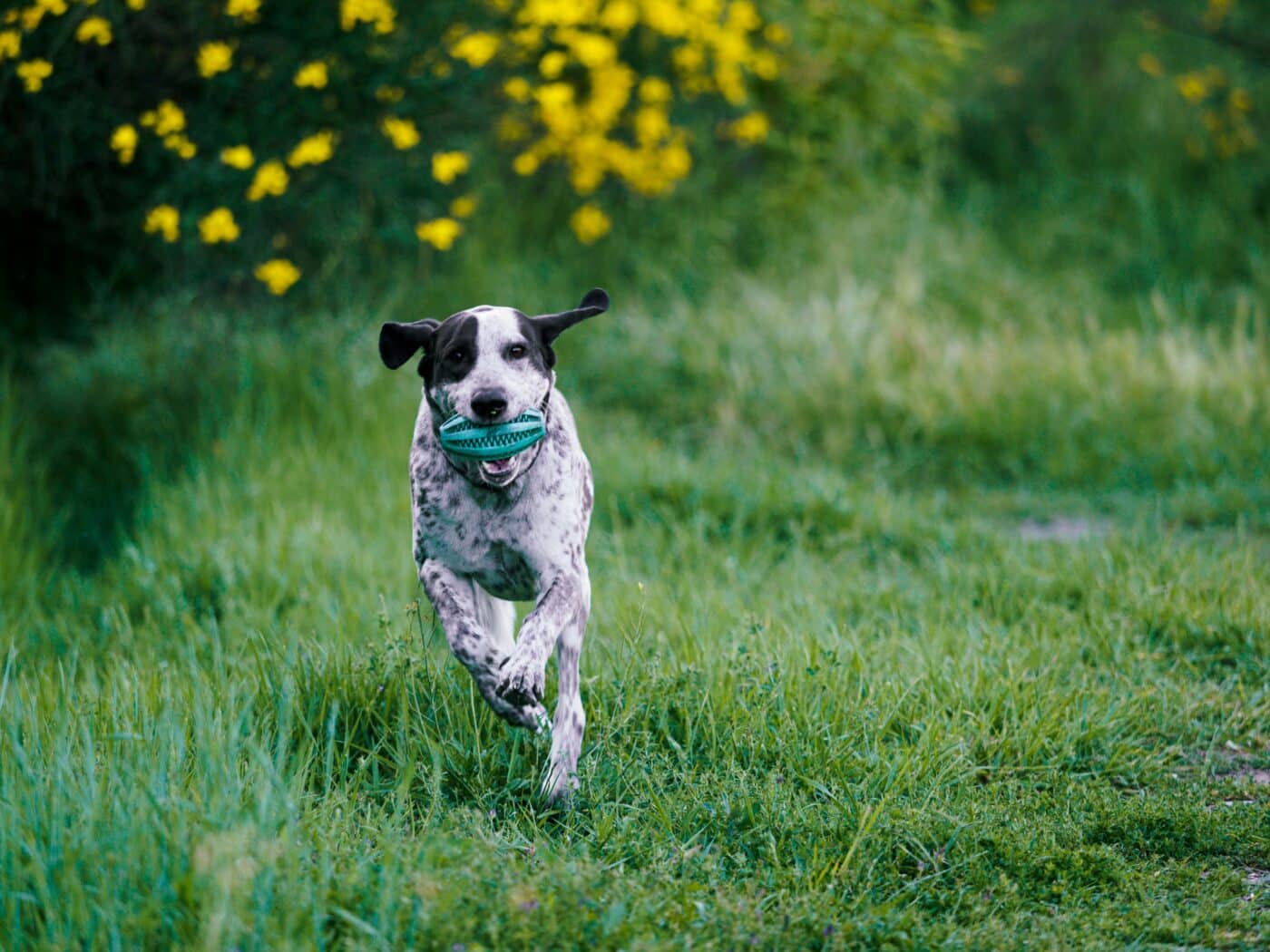 Shutterstock
Shutterstock
Dogs are naturally curious, but some behaviors, like eating rocks or other non-food items, can be puzzling or concerning. This habit, known as pica, often leaves pet owners wondering why their dog is consuming things that aren’t edible. There are several reasons for pica, ranging from health issues to behavioral problems. Understanding the underlying causes is crucial for addressing the behavior and protecting your dog’s health. By identifying what triggers this habit, pet owners can take steps to prevent potential harm and ensure their dog’s well-being.
Nutritional Deficiencies
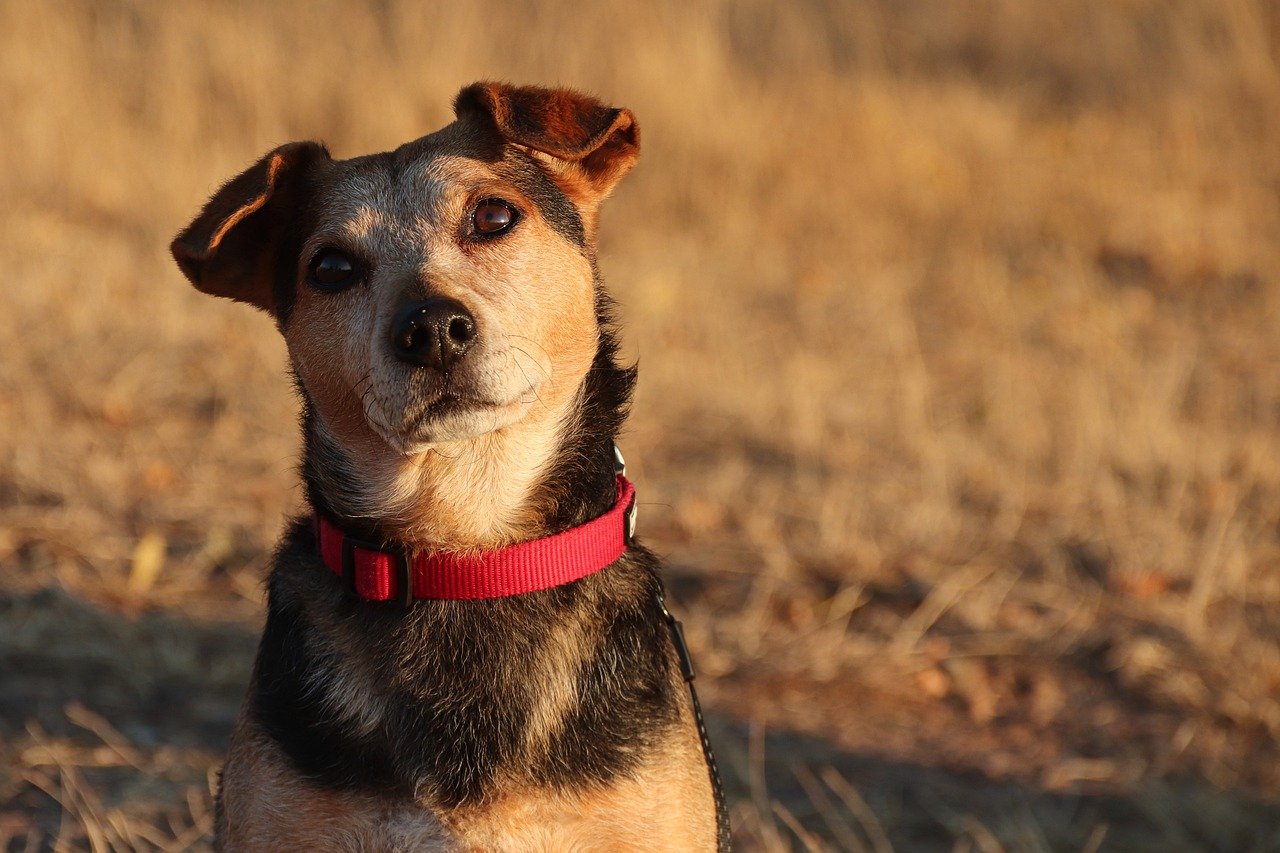 Shutterstock
Shutterstock
A nutritional deficiency is one of the most common reasons dogs eat non-food items, such as rocks. If a dog’s diet lacks essential vitamins or minerals, they may seek out other substances to try and meet these needs. For example, a dog deficient in iron or calcium might start eating rocks, soil, or other materials to supplement their diet. This behavior is the body’s way of signaling that something is missing nutritionally. Ensuring your dog receives a balanced diet that meets all their nutritional requirements can help reduce this behavior.
Gastrointestinal Issues
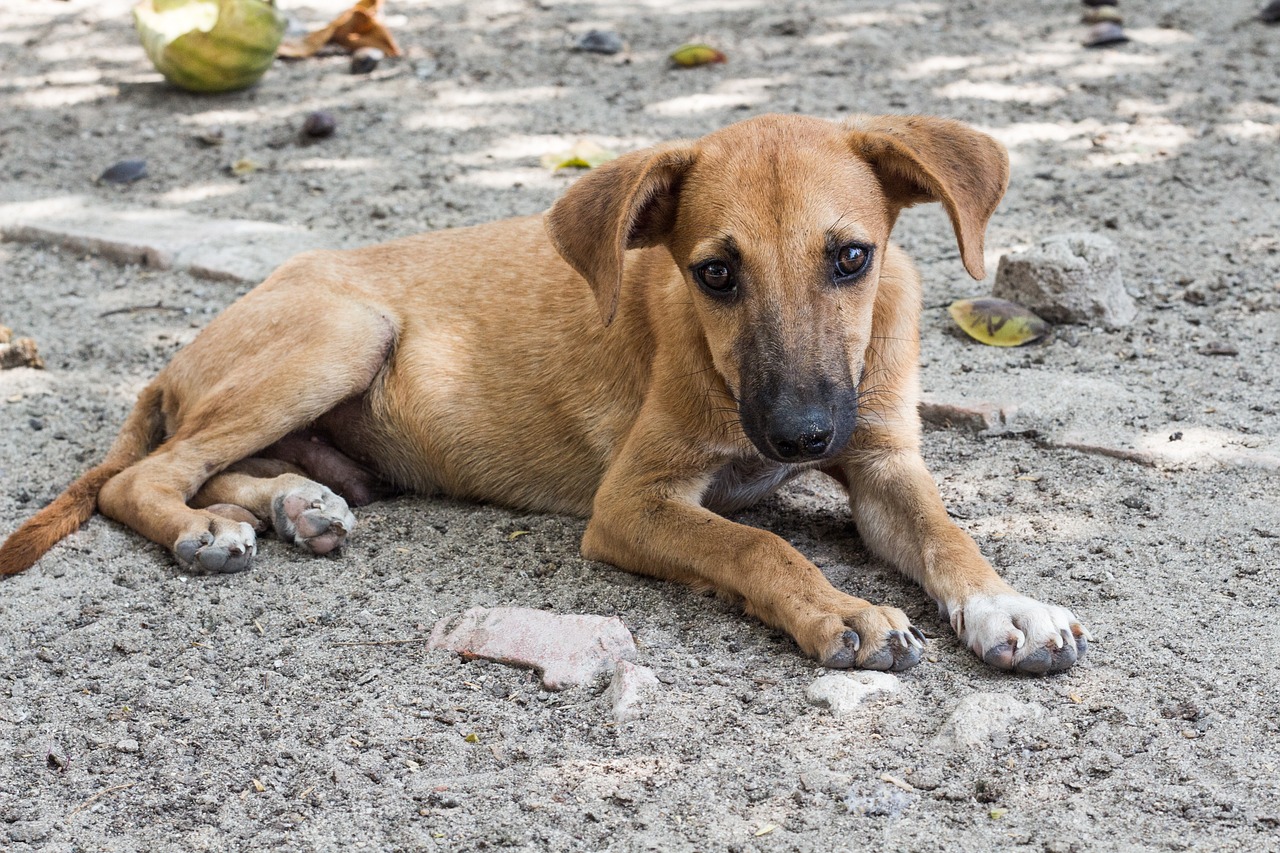 Shutterstock
Shutterstock
Dogs that are experiencing digestive discomfort or gastrointestinal issues might eat rocks or other non-food items as a way to soothe their stomachs. Just like humans might seek out certain foods to alleviate an upset stomach, dogs may attempt to eat odd substances to feel better. This behavior could indicate a problem such as gastritis, indigestion, or intestinal parasites. If your dog suddenly begins eating non-food items and showing signs of digestive distress, it’s essential to consult your vet for a proper diagnosis and treatment plan.
Boredom
 Shutterstock
Shutterstock
Boredom is a surprisingly common reason why some dogs turn to eating rocks or other non-edible objects. Dogs need mental and physical stimulation to stay happy and engaged. When dogs don’t receive enough exercise, playtime, or attention, they may start engaging in destructive or unusual behaviors to entertain themselves. Chewing or swallowing non-food items can become a way to alleviate boredom and pass the time. Increasing your dog’s daily activities with interactive toys, games, and exercise can help curb this behavior and keep them focused on healthier outlets for their energy.
Anxiety or Stress
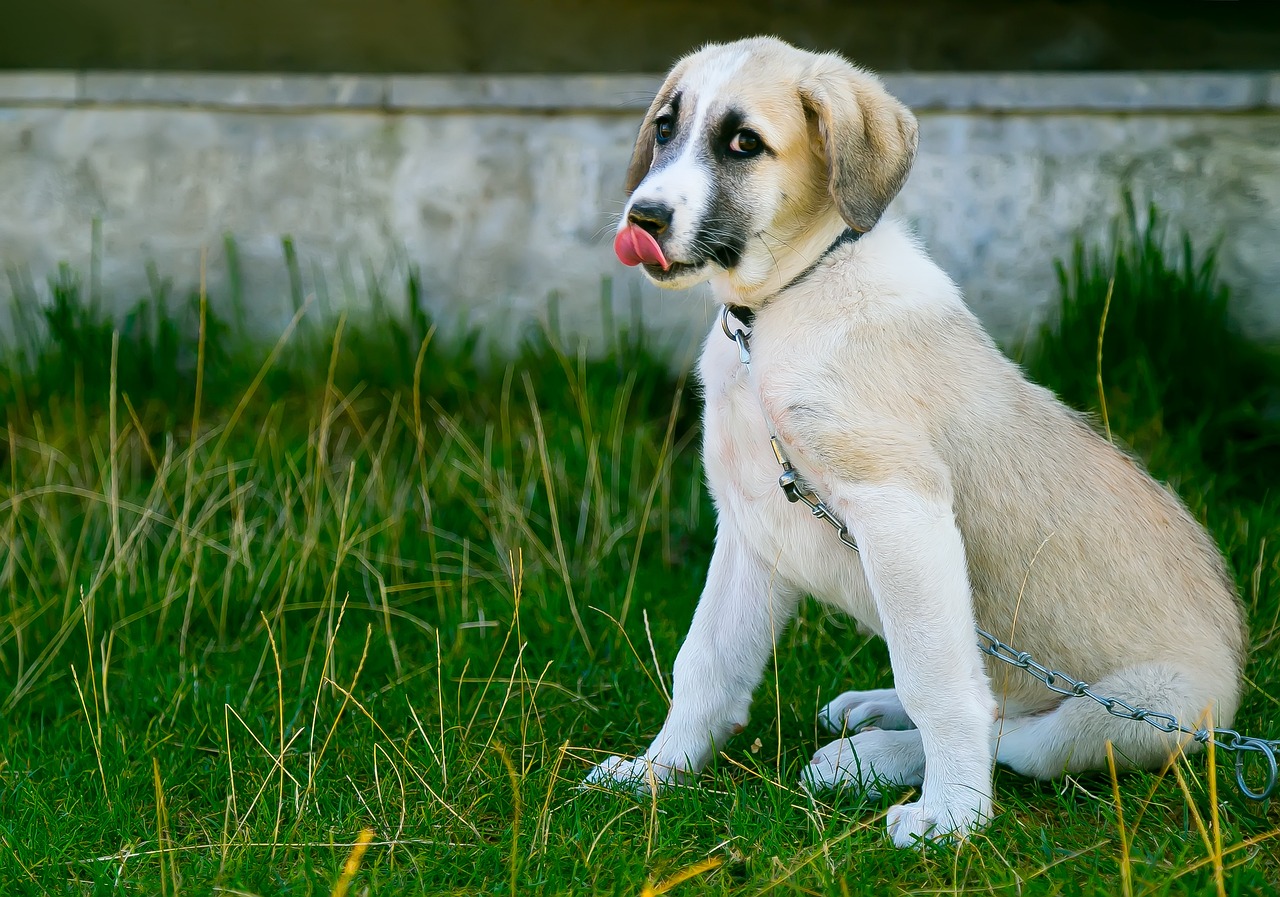 Shutterstock
Shutterstock
Just like humans, dogs can develop coping mechanisms for anxiety and stress, and for some dogs, eating non-food items is a way to manage these emotions. Dogs that experience separation anxiety, changes in their environment, or other stressors might resort to pica as a form of self-soothing. The act of chewing or eating objects can temporarily relieve anxiety, but it’s not a healthy solution. Addressing the underlying causes of your dog’s anxiety through behavioral training, environmental enrichment, or working with a professional can help reduce this behavior.
Attention-Seeking Behavior
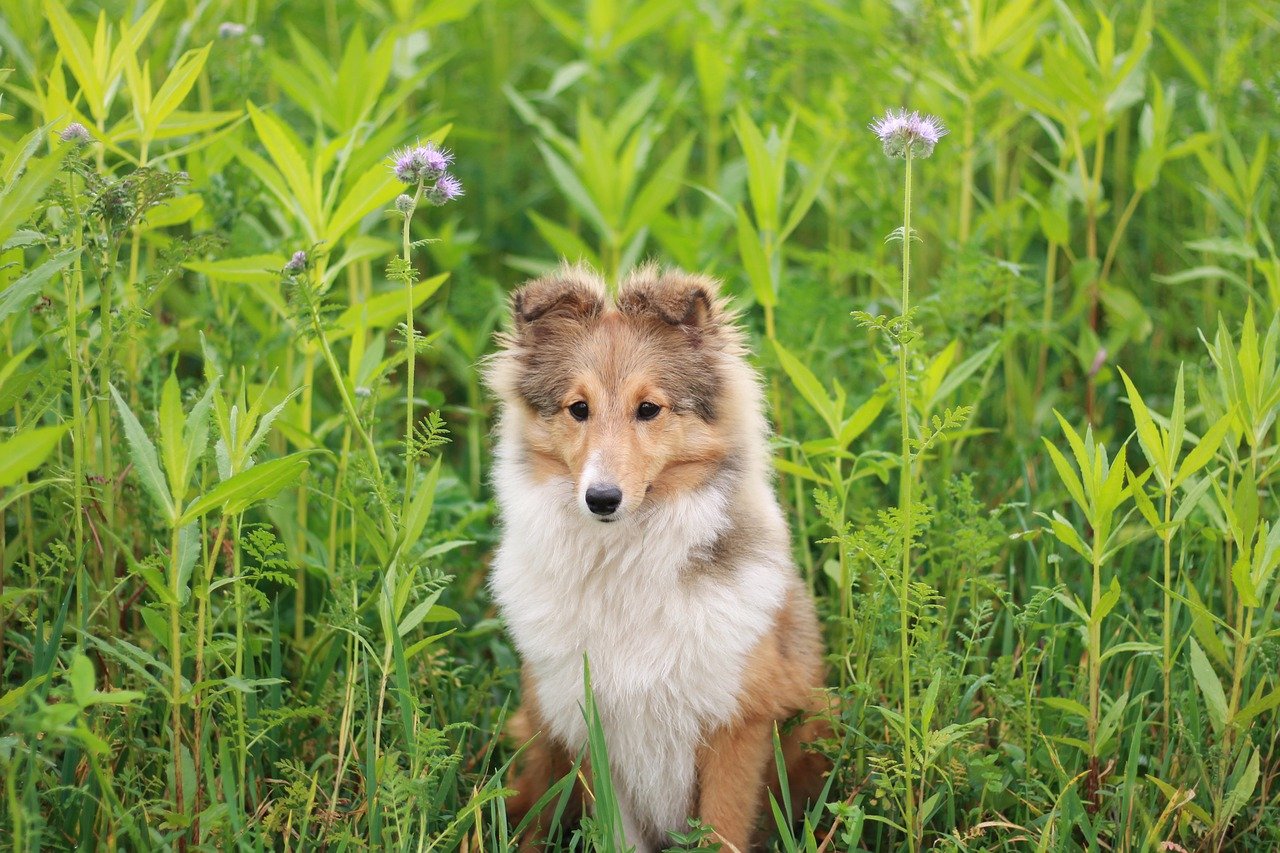 Shutterstock
Shutterstock
Some dogs will engage in unusual behaviors, such as eating rocks or non-food items, to get attention from their owners. If a dog learns that chewing on or swallowing objects results in a reaction from their owner, whether positive or negative, they may continue the behavior to keep the focus on themselves. Even scolding a dog for this behavior can inadvertently reinforce it, as the dog craves attention and may repeat the action. To discourage this behavior, it’s important to avoid giving it too much attention and instead provide positive reinforcement for appropriate actions.
Teething in Puppies
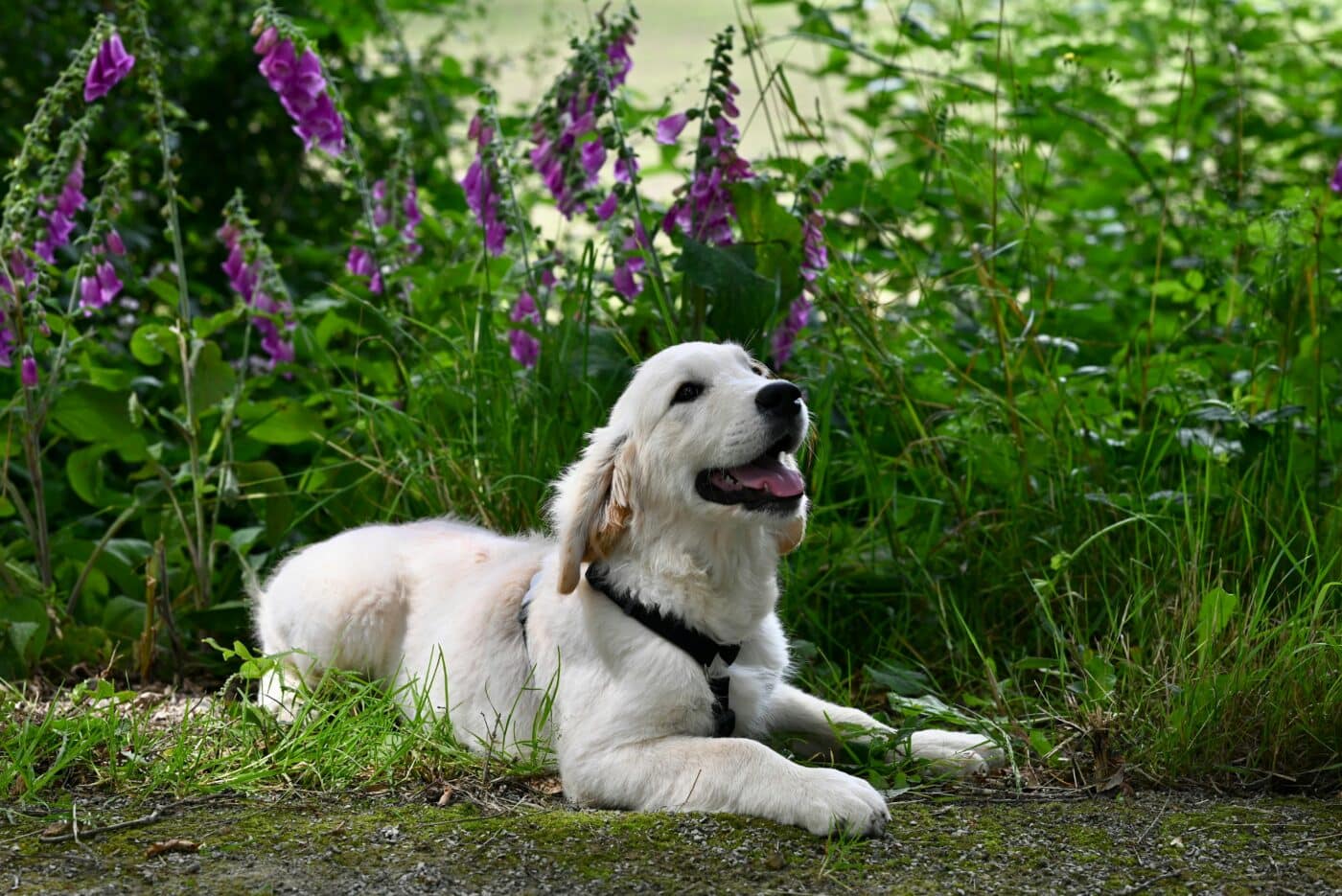 Shutterstock
Shutterstock
Puppies, especially those going through the teething phase, may chew on and attempt to eat rocks or other hard objects to relieve the discomfort in their gums. Teething puppies are notorious for chewing anything within their reach, including non-food items. While this behavior is often temporary, it’s important to redirect puppies to appropriate chew toys to prevent them from swallowing dangerous objects. Various safe, durable toys can help soothe their teething discomfort and reduce the likelihood of them turning to rocks or other harmful items.
Curiosity and Exploration
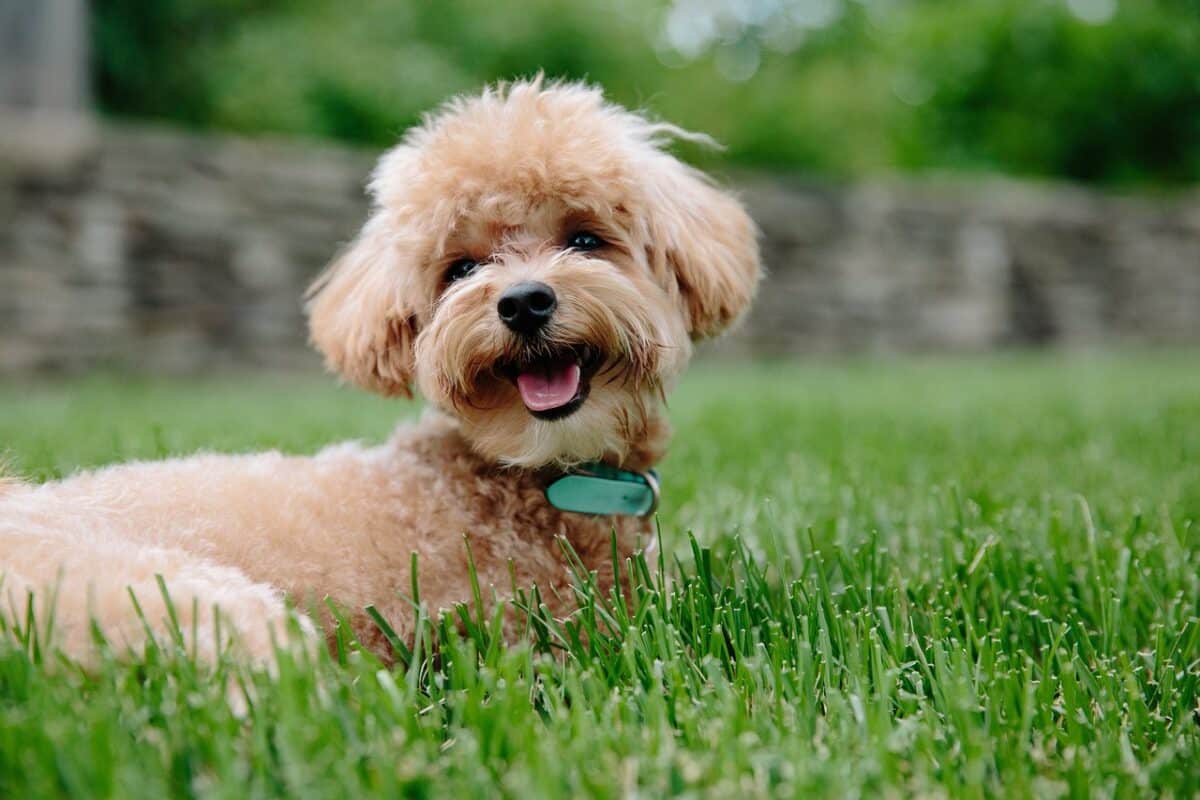 Shutterstock
Shutterstock
Dogs explore their world primarily through their mouths, and for some, eating rocks or non-food items results from simple curiosity. Puppies and younger dogs, in particular, may experiment with different textures and tastes by mouthing or even ingesting objects that aren’t meant to be eaten. This behavior is part of their natural exploratory process but can become problematic if it becomes a habit. Supervising your dog and ensuring they have access to safe objects to investigate can help prevent them from eating inappropriate items.
Hunger
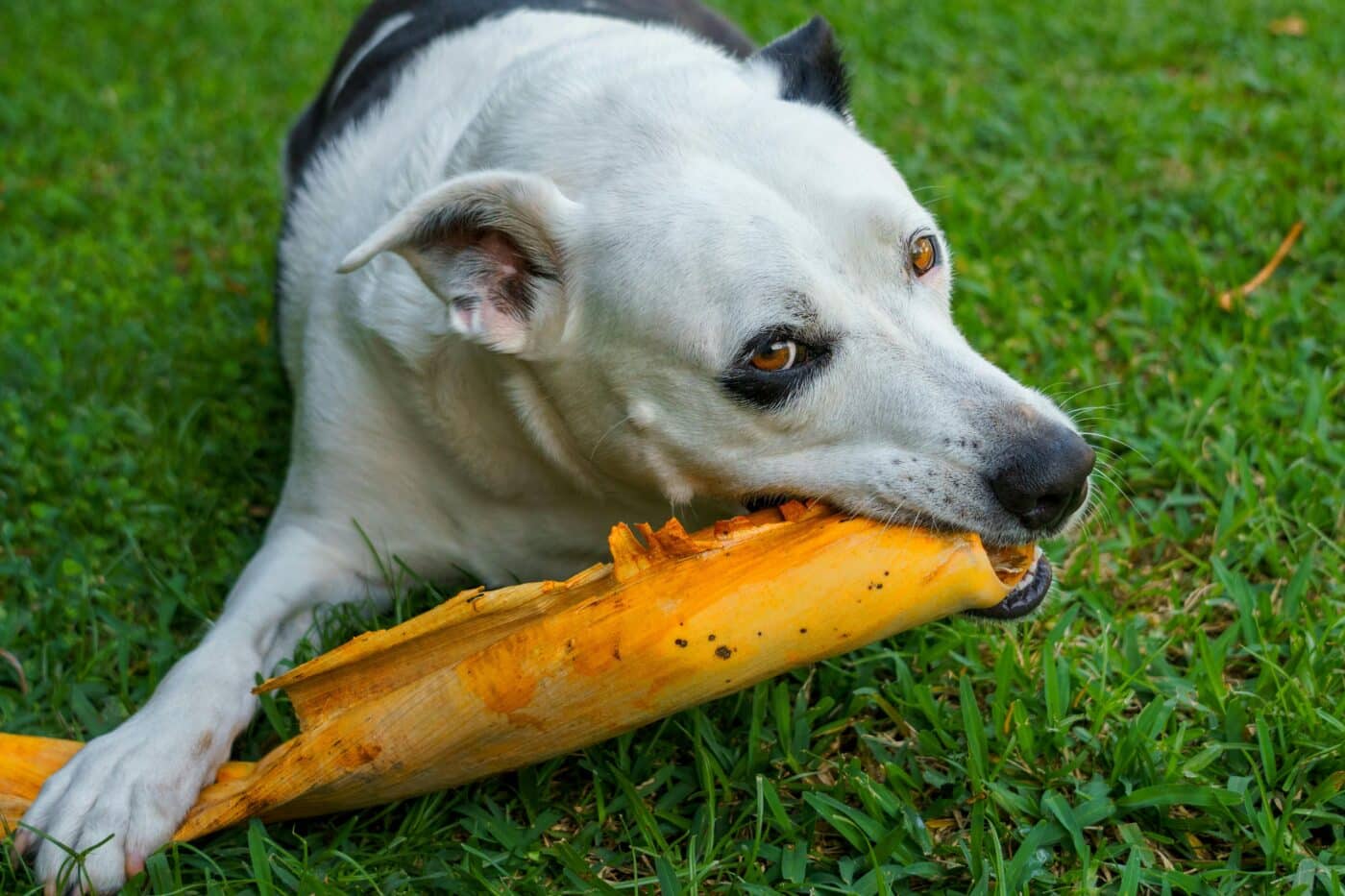 Shutterstock
Shutterstock
While it may seem counterintuitive, some dogs eat rocks or other non-food items simply because they are hungry. This is especially common in dogs that aren’t fed enough or are on a restricted diet. When a dog’s appetite isn’t fully satisfied, they may search for anything they can put in their mouths, even if it isn’t food. Ensuring your dog receives adequate portions of high-quality food and snacks throughout the day can help prevent hunger-driven pica.
Pica as a Compulsive Disorder
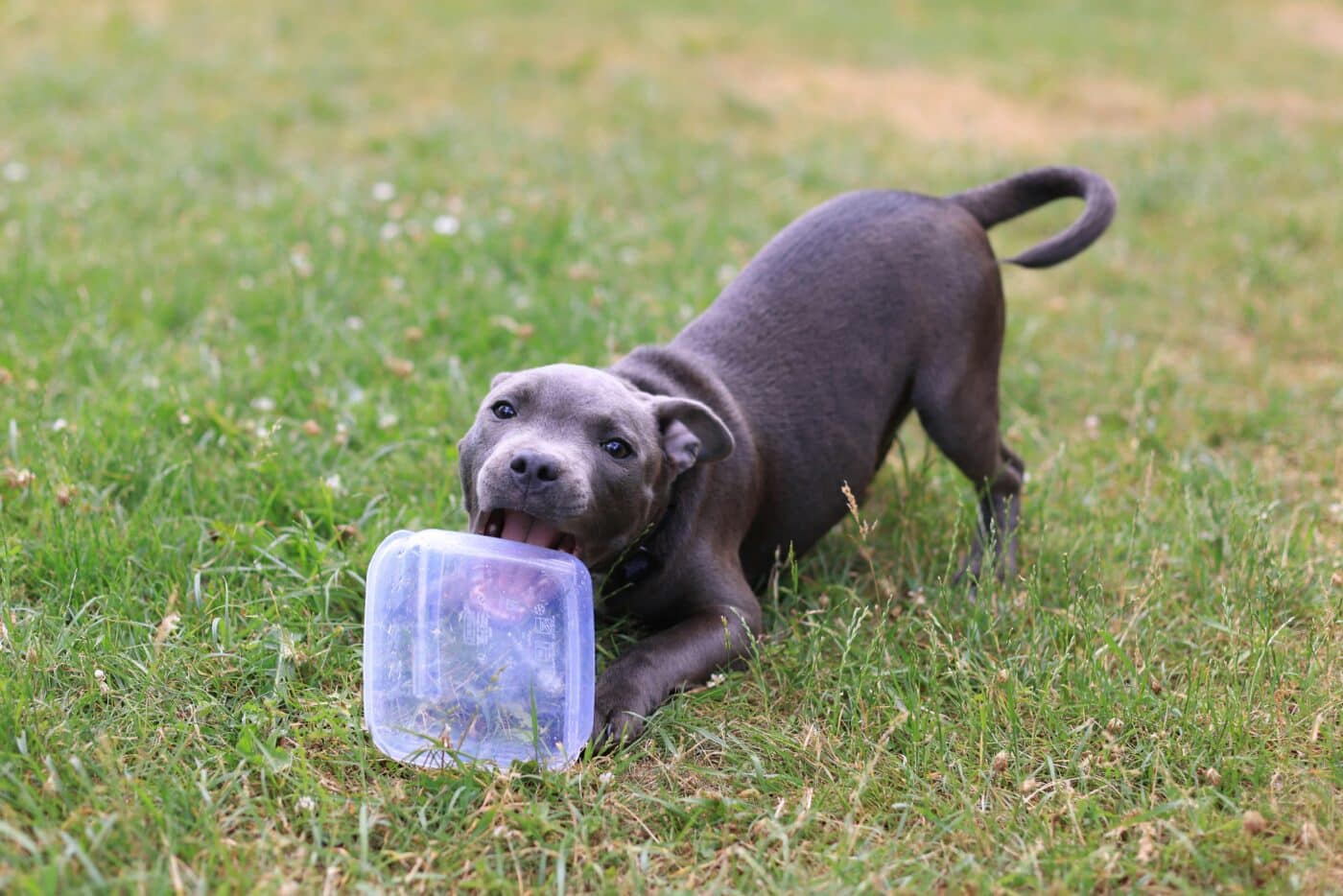 Shutterstock
Shutterstock
For some dogs, eating non-food items becomes a compulsive behavior, similar to obsessive-compulsive disorder in humans. This condition, known as pica, can cause a dog to crave and ingest objects that aren’t meant to be eaten, such as rocks, paper, or fabric. In these cases, the behavior is more deeply ingrained and difficult to control without professional intervention. Compulsive pica often requires a combination of behavioral therapy and medication to manage, as it is driven by neurological factors rather than simple curiosity or boredom.
Pain or Discomfort
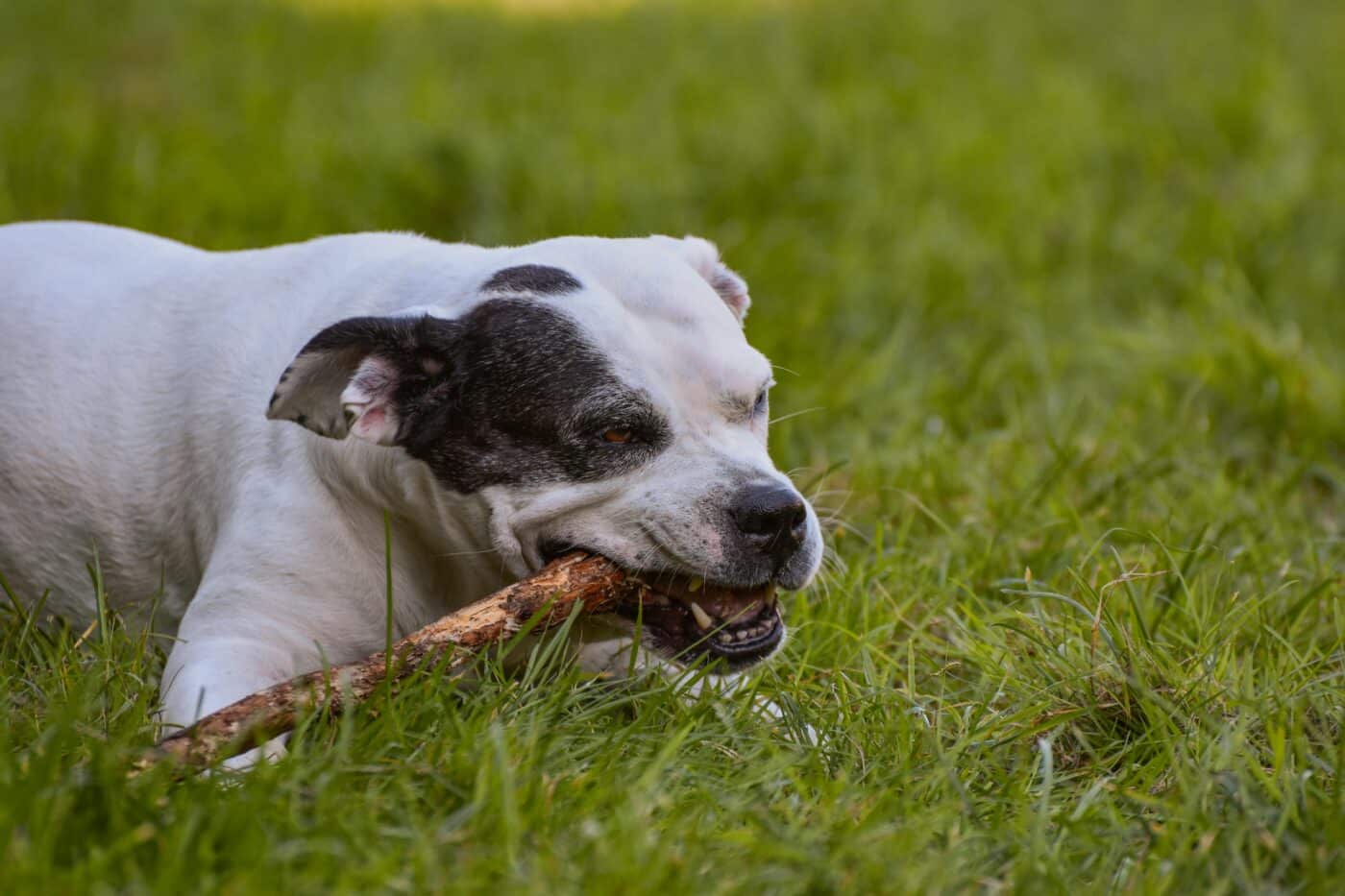 Shutterstock
Shutterstock
Dogs experiencing pain or discomfort, particularly in their mouths or teeth, might start eating non-food items to self-soothe. Chewing on hard objects like rocks can temporarily relieve dental pain but can also cause further damage to the teeth and gums. If your dog is eating rocks and showing signs of dental issues—such as bad breath, excessive drooling, or difficulty eating—it’s important to have their teeth examined by a vet to rule out any underlying oral health problems.
Learned Behavior from Other Dogs
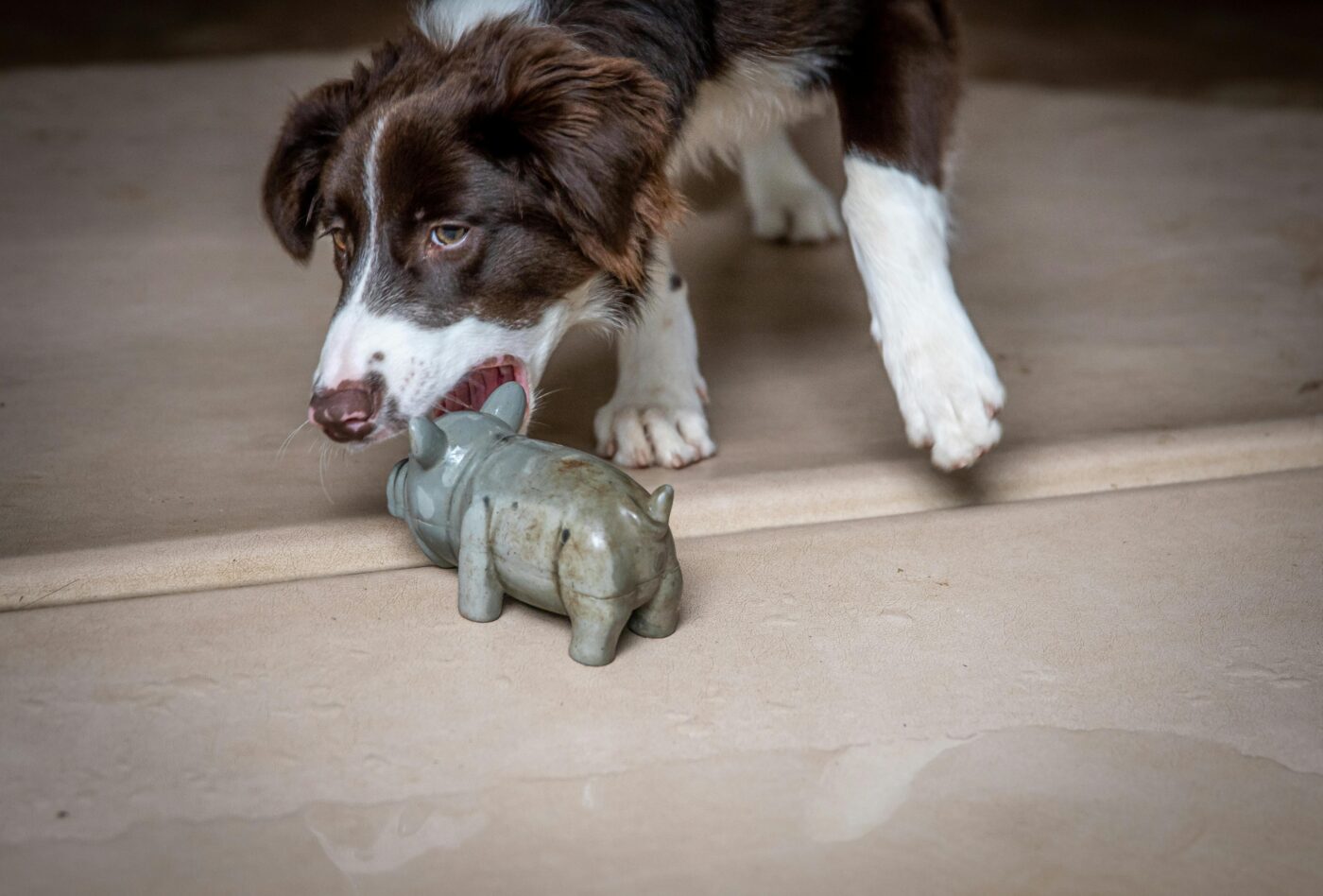 Shutterstock
Shutterstock
In multi-dog households, dogs may pick up on the behaviors of their companions, including eating rocks or non-food items. If one dog engages in pica, the others might observe and mimic the behavior. This can create a cycle where the behavior becomes normalized among the group. In these situations, it’s important to address the behavior in all the dogs involved and work on breaking the habit through training and redirection.
Mineral Cravings from the Environment
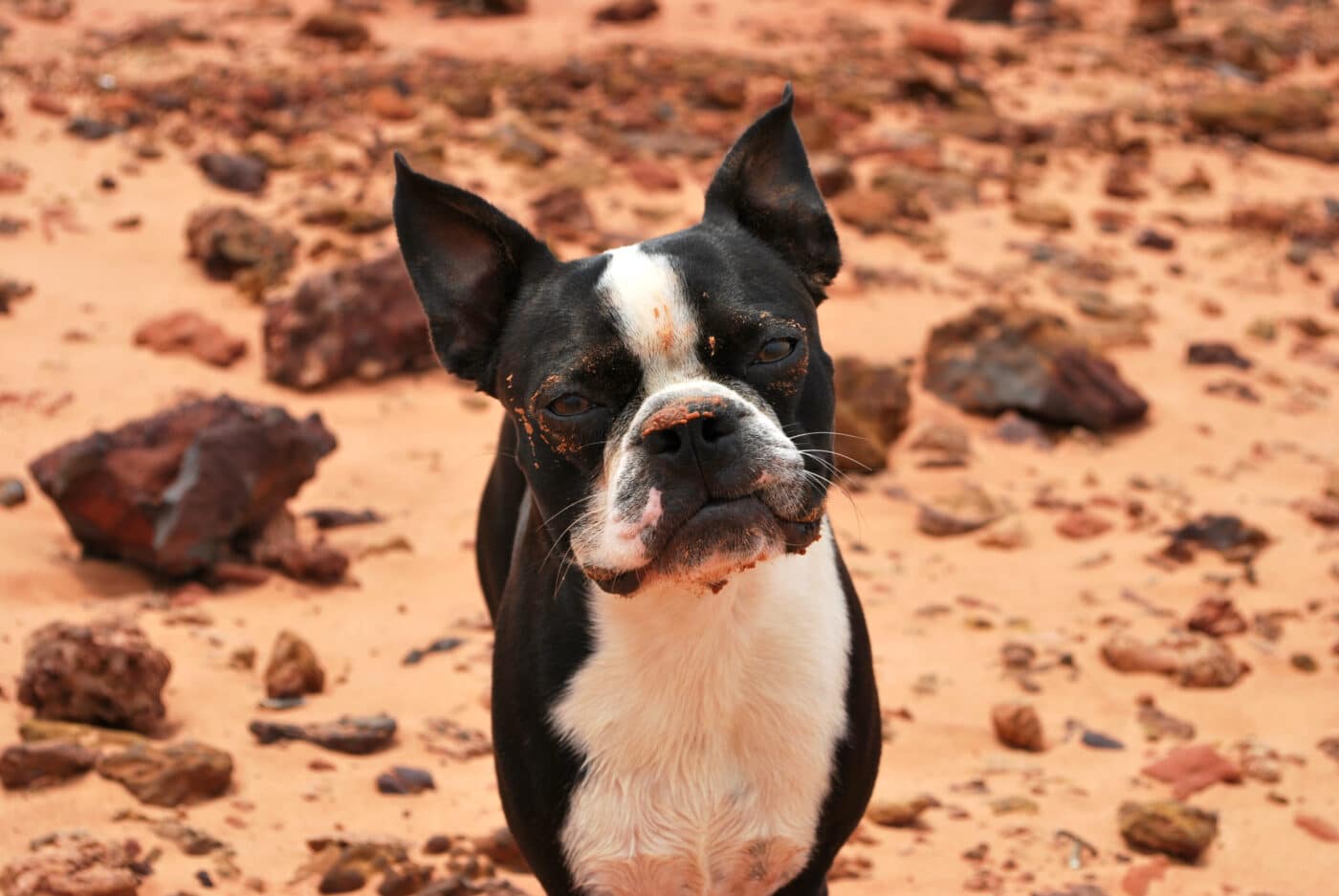 Shutterstock
Shutterstock
Dogs may crave specific minerals found in rocks or soil, leading them to eat these non-food items. This behavior is more common in dogs that live in areas with mineral-rich soil or that have access to natural elements like clay or dirt. The craving for these minerals can indicate a dietary imbalance, and it’s important to consult with a vet to ensure your dog’s diet meets all their nutritional needs. Providing mineral supplements or adjusting their food may help reduce this behavior.
Medical Conditions
 Shutterstock
Shutterstock
Certain medical conditions can cause dogs to develop abnormal eating habits, including consuming rocks or non-food items. Conditions such as diabetes, thyroid problems, or gastrointestinal disorders can lead to pica as a symptom. If your dog suddenly starts eating unusual objects, it’s important to consult with your vet to rule out any underlying medical issues. Blood tests, x-rays, and other diagnostic tools can help determine if a health problem contributes to the behavior.
Preventing Rock and Non-Food Item Eating
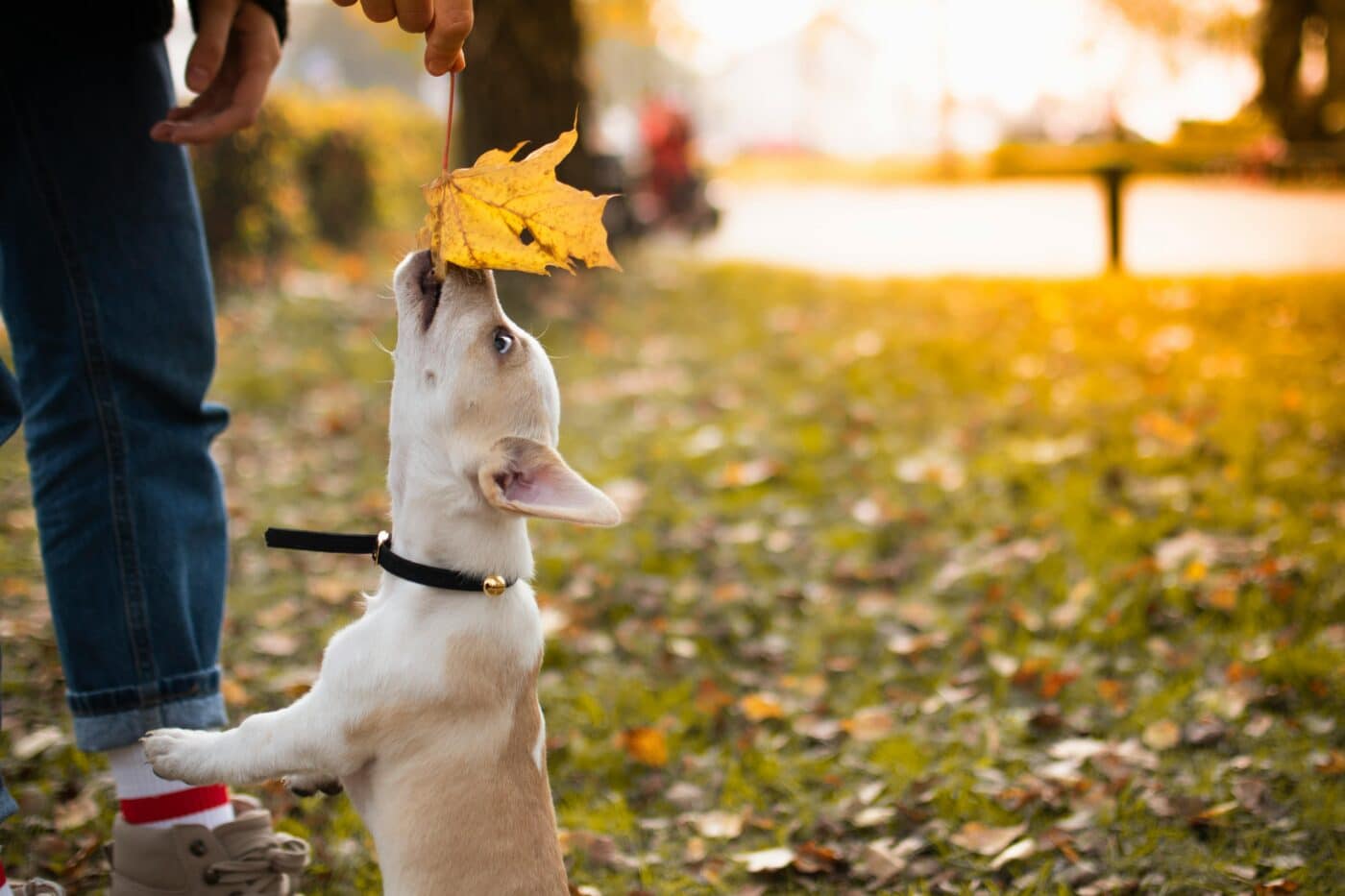 Shutterstock
Shutterstock
Dogs that eat rocks or other non-food items are at risk of serious health complications, including choking, intestinal blockages, or damage to their teeth and gums. Preventing this behavior requires understanding the root cause and addressing it directly. Whether your dog is eating rocks due to boredom, anxiety, or a medical condition, providing appropriate outlets for their energy and needs is essential. Supervision, proper training, and veterinary care can help stop this dangerous habit and ensure your dog’s safety and well-being.
 Toledo, United States.
Toledo, United States.